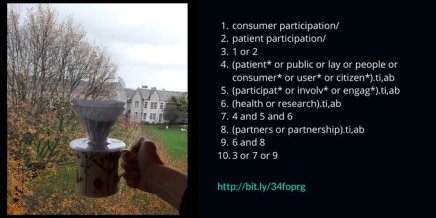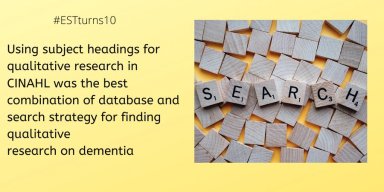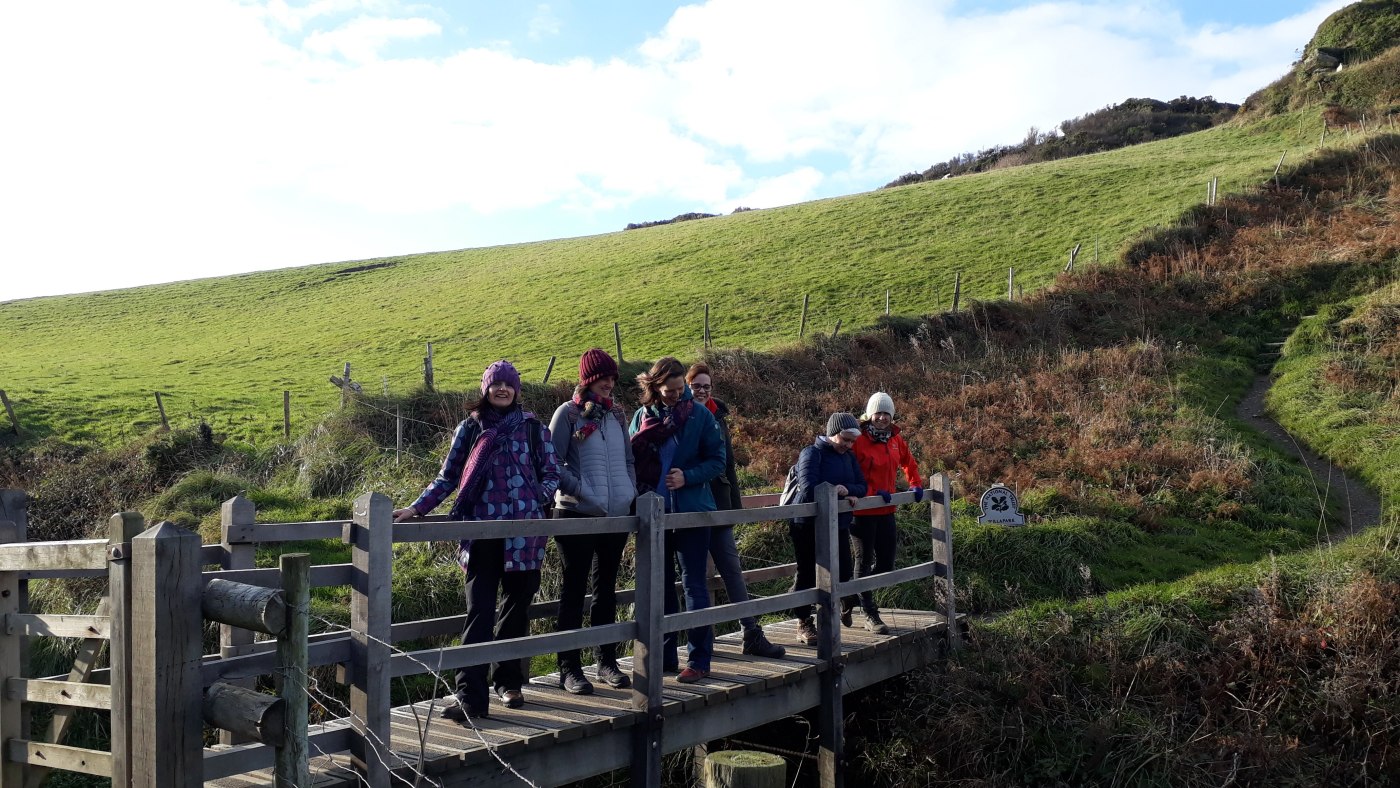This week for #ESTturns10 we have been tweeting about our methods work.
On Monday we focused on our involvement in the PenARC question prioritisation process. Engaging stakeholders in establishing a research agenda encourages the most relevant health questions to be asked and may improve implementation of research findings. Making research more directly relevant to the stakeholders reduces research waste.

How do we do it? Read our paper about the prioritisation process or check out our blog on reducing research waste through a good prioritisation process.

On Tuesday we reflected on methods work led by or involving our information specialists. This includes work with experts in environmental evidence on innovative methods in machine learning and work led by our information specialists with Kate Boddy from the PenARC PPI team resulted in a search filter for locating research involving patients and the public

We also investigated what database and search strategy works best for locating qualitative research about dementia
On Wednesday we turned our attentions to end user involvement in systematic reviews. While it can be challenging, it is also important, and very worthwhile. We published our experiences, including ways to improve and implement it.
And if things weren’t exciting enough for the final week of #ESTturns10, we were treated to a guest blog from Katy Sutcliffe and Dylan Kneale from the EPPI-Centre reflecting on our shared love of all things method-y in evidence synthesis. Oh, and our shared love of cake, of course!

Full list of Methods Papers
Whear R, Thompson-Coon J, Boddy K, et al. Establishing local priorities for a health research agenda. Health Expectations 2015;18(1):8-21. doi: 10.1111/hex.12029
Rogers M, Bethel A, Boddy K. Development and testing of a medline search filter for identifying patient and public involvement in health research. Health Information and Libraries Journal 2017;34(2):125-33. doi: 10.1111/hir.12157
Rogers M, Bethel A, Abbott R. Locating qualitative studies in dementia on MEDLINE, EMBASE, CINAHL, and PsycINFO: A comparison of search strategies. Research Synthesis Methods 2018;9(4):579-86. doi: 10.1002/jrsm.1280
Livoreil B, Glanville J, Haddaway NR, et al. Systematic searching for environmental evidence using multiple tools and sources. Environmental Evidence 2017;6(1) doi: 10.1186/s13750-017-0099-6
Briscoe, S, Bethel, A, Rogers, M. Conduct and reporting of citation searching in Cochrane systematic reviews: A cross‐sectional study. Res Syn Meth. 2019; 1– 12. doi: 10.1002/jrsm.1355
Crudgington H, Rogers M, Bray L, et al. Core Health Outcomes in Childhood Epilepsy (CHOICE): Development of a core outcome set using systematic review methods and a Delphi survey consensus. Epilepsia 2019;60(5):857-71. doi: 10.1111/epi.14735
Cooper C, Rogers M, Bethel A, et al. A mapping review of the literature on UK-focused health and social care databases. Health Information and Libraries Journal 2015;32(1):5-22. doi: 10.1111/hir.12083
Cooper C, O’Mara-Eves A, Rogers M, et al. The best of the UK? A report on the value and future of UK databases in the health and social care fields: A systematic map protocol. BMJ Open 2012;2(3) doi: 10.1136/bmjopen-2012-001411
Coon JT, Gwernan-Jones R, Moore D, et al. End-user involvement in a systematic review of quantitative and qualitative research of non-pharmacological interventions for attention deficit hyperactivity disorder delivered in school settings: reflections on the impacts and challenges. Health expectations : an international journal of public participation in health care and health policy 2016;19(5):1084-97. doi: 10.1111/hex.12400
Cheng SH, Augustin C, Bethel A, et al. Using machine learning to advance synthesis and use of conservation and environmental evidence. Conservation Biology 2018;32(4):762-64. doi: 10.1111/cobi.13117
Bethel A, Rogers M. A checklist to assess database-hosting platforms for designing and running searches for systematic reviews. Health Information and Libraries Journal 2014;31(1):43-53. doi: 10.1111/hir.12054

Leave a comment